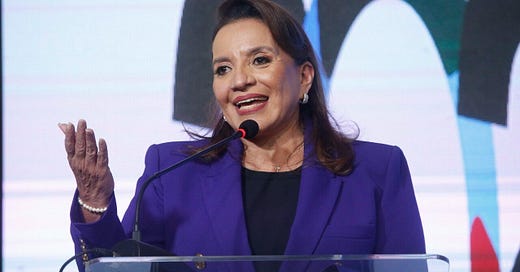During the twentieth century, the politics of the Latin American republics were for the most part dominated by two political parties, which coexisted with periodic military dictatorships. Beginning in the 1980s, the traditional political parties participated in the imposition of the neoliberal project, which undermined the sovereignty of the nations and had draconian consequences for the working class and the poor.
The process of social change unleashed in Latin America during the first decades of the twenty-first century was built on popular rejection of the neoliberal project and the delegitimation of the traditional political parties, rejected for their evident complicity in the political-economic project of the imperialist power.
In the case of Honduras, the traditional political parties were more than political parties. They functioned as social organizations to which families had belonged for generations, and they were an important dimension of personal identity…


